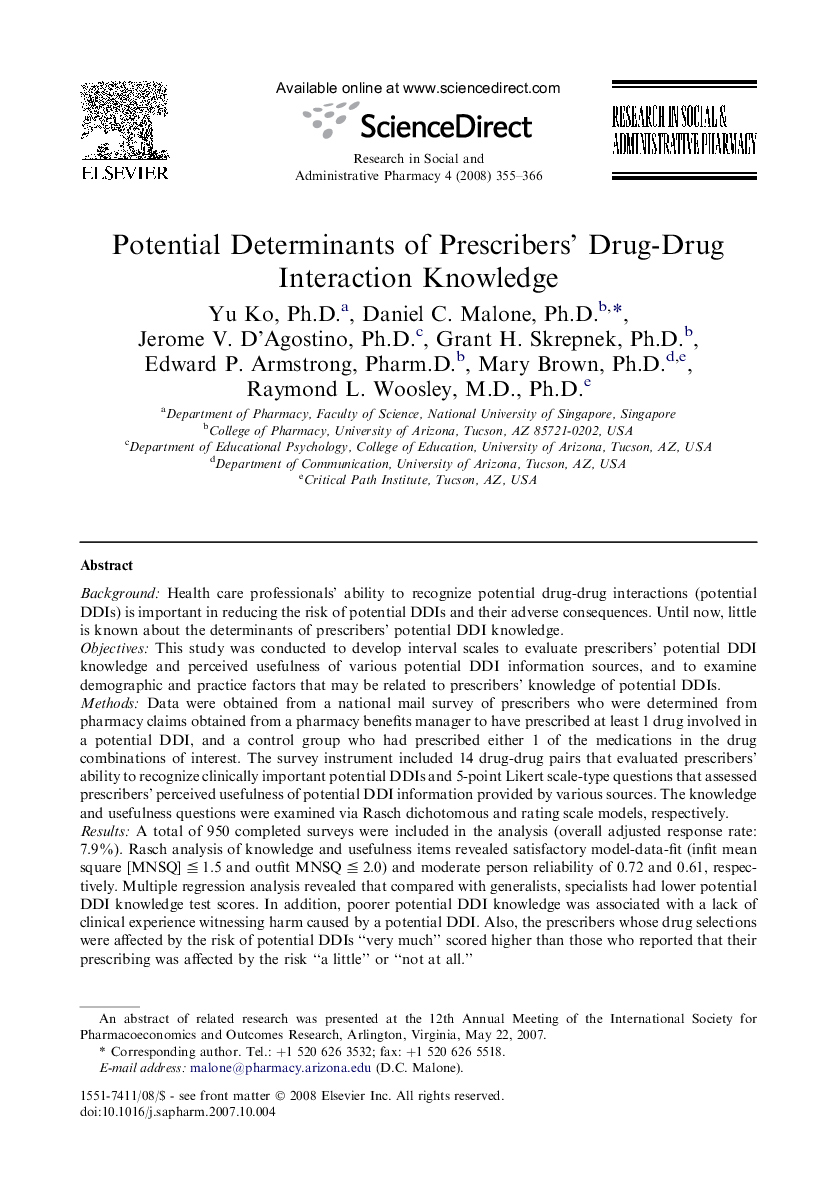| کد مقاله | کد نشریه | سال انتشار | مقاله انگلیسی | نسخه تمام متن |
|---|---|---|---|---|
| 2508920 | 1117627 | 2008 | 12 صفحه PDF | دانلود رایگان |

BackgroundHealth care professionals' ability to recognize potential drug-drug interactions (potential DDIs) is important in reducing the risk of potential DDIs and their adverse consequences. Until now, little is known about the determinants of prescribers' potential DDI knowledge.ObjectivesThis study was conducted to develop interval scales to evaluate prescribers' potential DDI knowledge and perceived usefulness of various potential DDI information sources, and to examine demographic and practice factors that may be related to prescribers' knowledge of potential DDIs.MethodsData were obtained from a national mail survey of prescribers who were determined from pharmacy claims obtained from a pharmacy benefits manager to have prescribed at least 1 drug involved in a potential DDI, and a control group who had prescribed either 1 of the medications in the drug combinations of interest. The survey instrument included 14 drug-drug pairs that evaluated prescribers' ability to recognize clinically important potential DDIs and 5-point Likert scale-type questions that assessed prescribers' perceived usefulness of potential DDI information provided by various sources. The knowledge and usefulness questions were examined via Rasch dichotomous and rating scale models, respectively.ResultsA total of 950 completed surveys were included in the analysis (overall adjusted response rate: 7.9%). Rasch analysis of knowledge and usefulness items revealed satisfactory model-data-fit (infit mean square [MNSQ] ≦ 1.5 and outfit MNSQ ≦ 2.0) and moderate person reliability of 0.72 and 0.61, respectively. Multiple regression analysis revealed that compared with generalists, specialists had lower potential DDI knowledge test scores. In addition, poorer potential DDI knowledge was associated with a lack of clinical experience witnessing harm caused by a potential DDI. Also, the prescribers whose drug selections were affected by the risk of potential DDIs “very much” scored higher than those who reported that their prescribing was affected by the risk “a little” or “not at all.”ConclusionsThis study found that specialists were less likely to correctly identify interactions compared with generalists. Other important predictors of potential DDI knowledge included the experience of seeing a potential DDI-caused harm and the extent to which the risk of potential DDIs affected prescribers' drug selection.
Journal: Research in Social and Administrative Pharmacy - Volume 4, Issue 4, December 2008, Pages 355–366